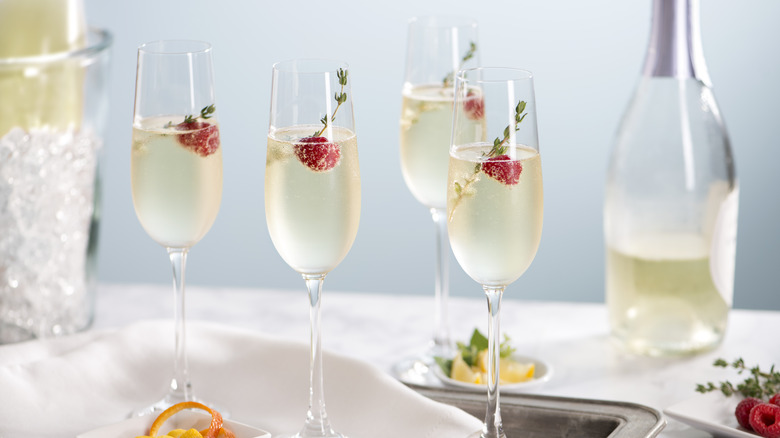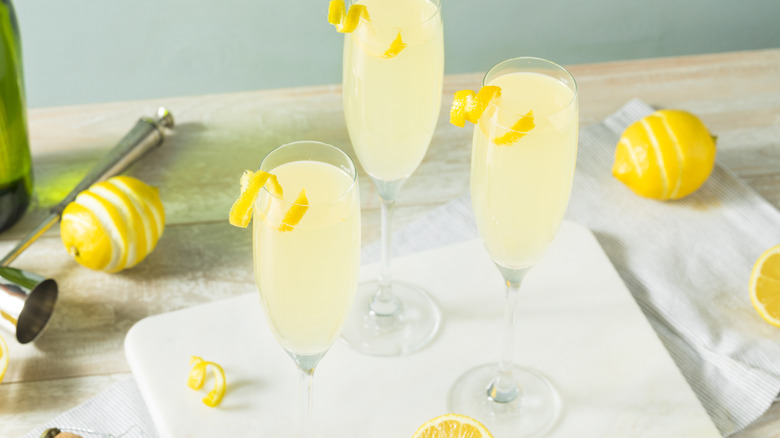The Best Sparkling Wines To Use In Your Champagne Cocktails, According To An Expert
Sparkling wine is the star ingredient behind a slew of famous cocktails. From the French 75 to the eyebrow-raising pornstar martini, this sophisticated beverage has been giving drinks a bubbly flair for decades. You might not give too much thought to the type of sparkling wine you use for these drinks, but you might be missing out on some amazing flavor pairings. Author and award-winning mixologist Cody Goldstein spoke with Tasting Table about his thought process for selecting a sparkling wine for cocktails. He begins by evaluating the drink's tasting notes and using that analysis as inspiration for his wine selection.
"If you are pulling from Spanish flavors in a cocktail, then incorporating Cava will tie a lot of the storytelling and flavors together," he explained. "A nice bottle of Sekt from Germany can bring more fruit-forward flavors such as apple, stone fruit, and citrus." He did, however, warn against using Champagne as a mixer because of its intricacies. In his opinion, Champagne should be savored and celebrated as a drink's main component, not a splash at the very end. His go-to for a neutral sparkling wine mixer is a bottle of Prosecco or Crement.
"The bubbles tend to be a bit larger in size and make the drinking experience more enjoyable when not just sipping," Goldstein told Tasting Table. He pointed out that these wines hold up well to juices and syrups, such as the line of syrups he produced through his hospitality group Muddling Memories.
Is a sweet or dry sparkling wine better for cocktails?
If you're wondering whether you should use a dry or sweet sparkling wine, there's no clear-cut answer. Cody Goldstein recommended focusing on creating a harmonious pairing between the cocktail's other components and the sparkling wine.
"A cocktail such as an Aperol spritz, which prides itself on being bubbly, typically uses Prosecco as the base so as not to make the drink overly sweet," said Goldstein. "French 75s rely heavily on citrus and sweet, and so a brut Champagne with some sweetness but [that's] not overly sweet can be a good marriage in balance."
Of course, the choice also depends on personal preference. You can choose whether you want a sweeter touch to your cocktail or if you want a more neutral flavor. Goldstein explained that different types of Champagne are classified by sweetness, giving you a reliable guide for selecting one based on this aspect. Brut is the driest Champagne can be — the sweetness only increases from there.

